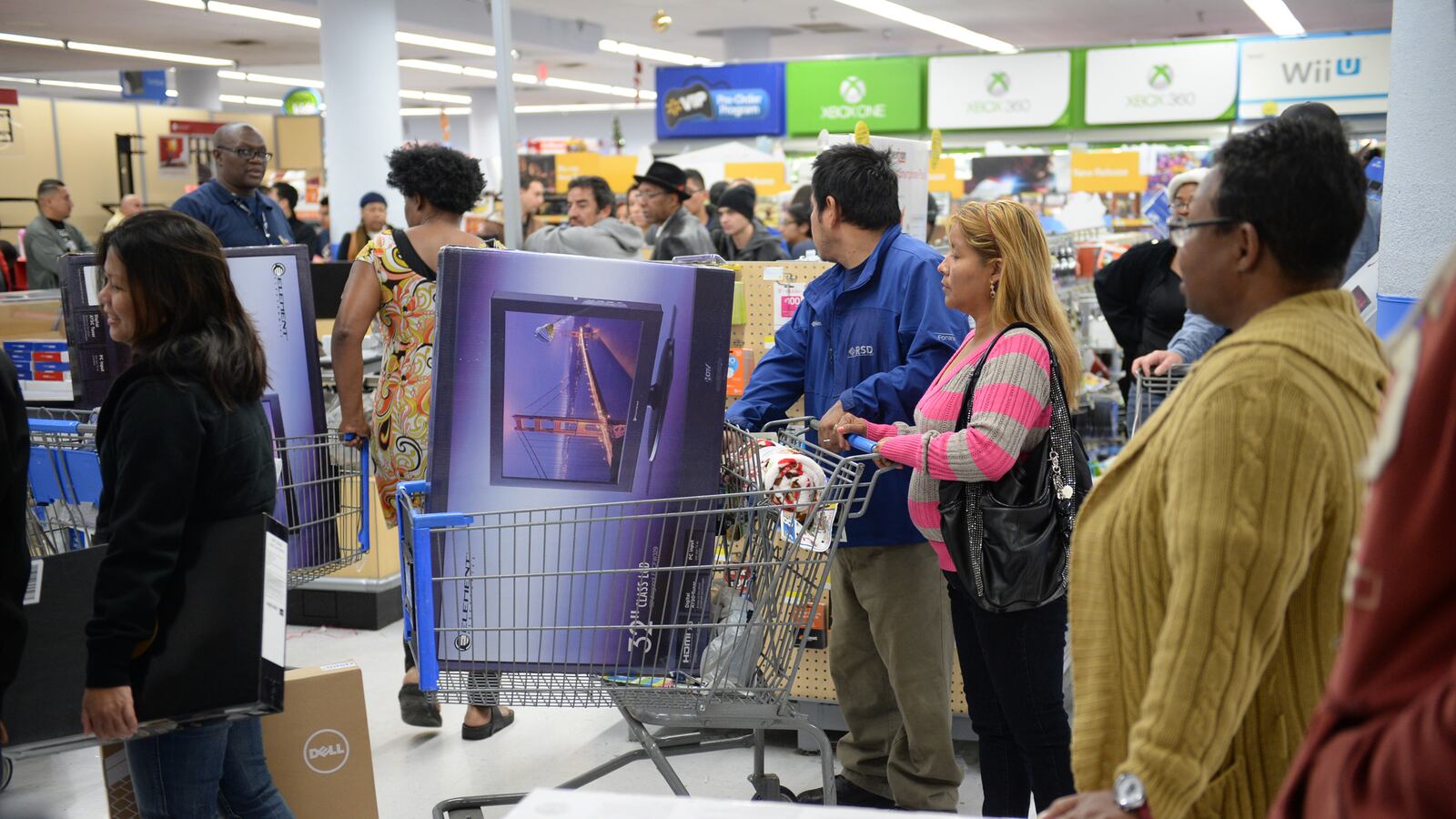Judging by the first returns, the big holiday shopping season was something of a disappointment. According to the National Retail Federation, shoppers estimated that they would spend about 2.7 percent less over the 2013 Thanksgiving shopping weekend than they did in 2012.
We shouldn’t draw too many conclusions from this widely quoted data point. To begin with, NRF’s number is an estimate based on what consumers said about their intentions, not an actual measurement of sales. Thanksgiving Day and Black Friday represent two days of shopping and consumption out of 365. What’s more, the retail landscape is changing so rapidly that comparing one year’s results to another is like comparing apples and oranges. With online sales growing at a rate three or four times that of brick-and-mortar sales, you’d expect stores to struggle just to maintain flat sales from last year. The rush of stores open on Thanksgiving undoubtedly pulled spending back from Black Friday. And this year, many companies pushed back Black Friday sales to the week before Black Friday, which certainly pulled some sales forward. Meanwhile, Hanukkah came early this year, which means that a small chunk of consumers had likely completed their shopping before Thanksgiving.
To these variables, we should add a few more. It could be, at the margins, that a small subset of Americans is put off by the increasingly unpleasant, dangerous, and desperate Thanksgiving/Black Friday shopping frenzy. (The Huffington Post helpfully aggregated instances of Black Friday violence.) Still others are deciding they don’t want to be implicated in the distasteful trend of Fortune 500 companies forcing low-paid service workers to report for duty on what should be a holiday. On the Wall Street Journal editorial page, Peggy Noonan urged consumers to boycott stores on Thanksgiving.
And yet, at the end of the day, the numbers will be OK, and about as expected. Retailers may suffer as they lose share to online shopping, and those that slashed margins in an effort to draw shoppers into the stores will find that it might not have made as much sense. Sales for the season are projected to rise 3.9 percent from 2012, That may be disappointing. But it makes perfect sense. Through the first ten months of 2013, retail sales (excluding autos and auto parts) were up 3.2 percent from the first ten months of 2012. In other words, consumers generally spent in the past week much as they have for the past year.
Retailers may believe they have a right to expect better. After all, the flow of economic data has been pretty decent. The U.S. economy has never been larger. We have more people working than at any time since August 2008. Financial failure is way down, and the economy has just entered its 54th month of expansion. The annus horribilus of 2008 is slipping into the past.
And yet consumer confidence remains at depressed levels. The Gallup Economic Confidence Index was sandbagged by the October government shutdown and debt-ceiling brinkmanship. While it has rallied steadily since the resolution of the Washington crisis, it is still deep in negative territory—and is below where it’s been for much of the past year. Other measures of consumer sentiment are bumping along at low levels. The Conference Board’s measure of consumer confidence last week fell for the second straight month and stands at 70.4—a level typically seen in recessions. (The ThomsonReuters/University of Michigan Consumer Sentiment Index rose a bit in November.)
It doesn’t take an economics Ph.D. to understand why. Simply put, in this expansion, the fruits of growth have not spread evenly. Sure, the stock market boom is making people feel wealthy, but fewer Americans own stock than did three, or five, or ten years ago. Yes, the typical American is in better financial shape than several years ago. But the fuel that powers spending for most shoppers is wages, not savings, or dividends, or capital gains, or home equity. And while wages and private income are rising—personal income was up 3.6 percent in the third quarter of 2013 from 2012 percent—they’re not rising at a rate that would spur exuberance.
Until big retailers—and their fellow employers—loosen the purse strings and consciously decide to pay employees more, they shouldn’t expect to see a boom in holiday sales.






